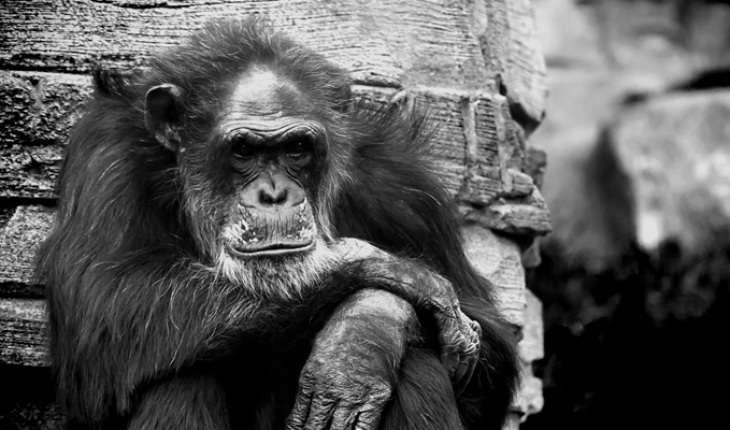Photograph/ Pixabay
World.- Thanks to data collected over 12 years with chimpanzees from show business or used as pets, a team of scientists demonstrates that the traumatic situations these great apes have suffered during early childhood have a permanent impact on their social skills in their adulthood.
Since the 1950s, thousands of chimpanzees (Pan troglodytes) have been extracted from the wild to be shipped to the US, Asia and Europe. Others were obtained through captive breeding to be used in biomedical research, the entertainment industry or to be kept as pets.
Of the latter, who have spent the first years of their lives working in circuses, living in homes together for humans or conducting advertising campaigns, few studies had so far analyzed the consequences of the trauma caused during their childhood.
In a project funded by “la Caixa”, researchers from Fundación Mona, the University of Girona and the University of Graz, work with chimpanzees with a previous history as pets or dedicated to the world of entertainment to better understand how and to what degree past and current living conditions affect and mark them.
The results of this study, published in the journal PLoS ONE, suggest that, like humans, chimpanzees experience a very sensitive phase of social and emotional development during childhood, at which point traumatic experiences can have a lasting and permanent impact on their future behavior and quality of life.
Research has shown that the childhood living conditions of these chimpanzees, which have been extracted from their natural habitat most likely witnessing the death of their mother or members of their group, mainly affect grooming or social grooming, a basic social behavior in the lives of chimpanzees and that plays an important role in the bonding and reconciliation after conflicts.
The childhood living conditions of these chimpanzees mainly affect grooming, a basic social behavior in their lives
“After twelve years of study, we found that chimpanzees that were housed in isolation spent less time grooming other individuals compared to chimpanzees that had grown up in a social group during their first five years of life,” says Elfriede Kalcher-Sommersguter, a researcher at the University of Graz and one of the study’s supervisors.
A permanent emotional scar
Although several years have passed since his arrival at the MONA Foundation, where the specimens analyzed for the work are housed, the emotional scar is still very present in the animals. “They will be ‘social lyverish’ for life,” laments Miquel Llorente, research supervisor and scientific director of the foundation.
Their well-being and quality of life can, however, improve thanks to learning new social skills in large naturalized and complex enclosures, as well as correct cognitive and social stimulation.
“These results,” Llorente stresses, “emphasize the importance of investigating this type of battered animals. This will help improve the well-being and management practices of chimpanzees with traumatic history, as well as ensure the economic viability of recovery centers that work day by day for the welfare and conservation of primates,” says the researcher.
“We must not forget about animals that are still trapped in situations of risk and abuse,” says Dietmar Crailsheim, phD student at the University of Girona and researcher at Fundación MONA.
The responsibility of scientists is to understand what these animals experienced in their past, their limitations, needs and abilities to provide them with an adequate environment and enable them to live a dignified life.
Source: SINC
translated from Spanish: The other side of chimpanzees actors and pets
January 20, 2020 |





